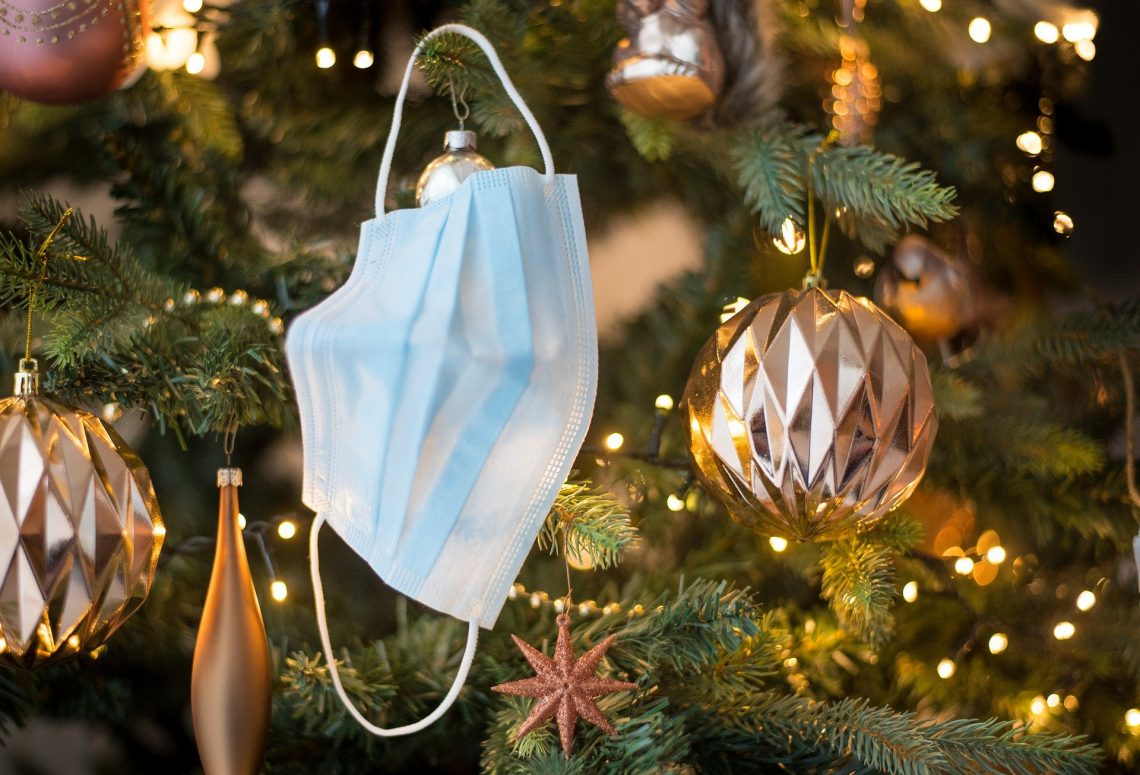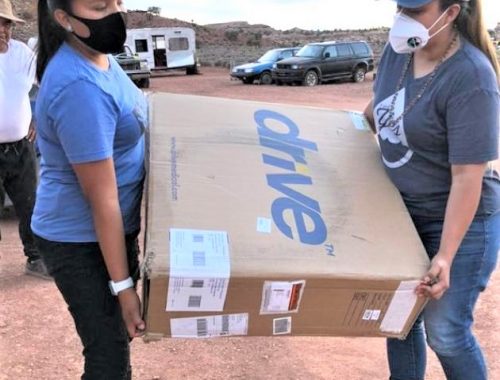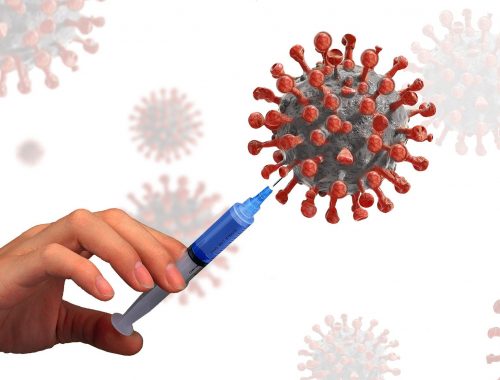
We Must Cancel Christmas This Year if We Want to Have One Next Year
It’s been a long year, or rather a long nine months since the pandemic began in mid-March. And now we’ve made it to Christmas. There were high hopes that things would get better by Christmas 2020, but unfortunately, they’ve only gotten worse.
The holiday season ushers in lights, festive tunes, warm fires, stockings and gifts, all exchanged and shared in gatherings with those near and dear to us. But gathering is precisely what we must not do this year if we want the pandemic to end sooner rather than later.
That’s why Christmas gatherings must be cancelled this year if we want to have a Christmas and holiday season — in all their festive glory — next year.
In the Eye of the Storm
With record-high COVID-19 cases being registered across the world, health officials are clear on the fact that there should be no holiday gatherings of any kind as the pandemic rages on.
And now with new circulating variants of the SARS-CoV-2 coronavirus having been found in the UK, South Africa, Brazil and Nigeria, containing infectious spreads remains critical.
In Canada, the province of Ontario’s COVID-19 case numbers have been hovering around 2,500 per day for the past few weeks. This is putting a strain on hospitals with hospital and ICU admissions spiking dramatically. The Ontario Hospitals Association called on urgent action to prevent what it calls the “devastating surge in COVID-19 patients” that threatens to overwhelm hospital systems and lead to shortages of beds.
And in Indigenous communities across the country, including those in the remote province of Nunavut (which had its first COVID-19 case in November), COVID-19 outbreaks are forcing lockdowns in the region.
Messaging from governments has been less clear. In the UK, the federal government was determined to carry on with Christmas as planned, that is until the new viral variants decided to show up. Now much of the country is in strict lockdown. This as over 40 countries across the world have implemented restrictions on travel from the UK. Canada, Turkey, Spain and Switzerland are among some of the countries that have completely banned flights from the country.
We are in the eye of the storm right now, where some people may fail to see outwards, and feel numbed and vacuumed in by the exhausting year it has been. People are suffering from COVID fatigue — and many are suffering from COVID itself — a much worse predicament. The bright lights of the holiday season are supposed to bring hope, right? And yes, we should let them bring hope — hope for the coming year.
What About Bubbles, Getting Tested?
While the Ontario government finally caved and restricted celebrating the holidays with only those that you live with, some people still have other ideas.
What harm can seeing just a couple of people do? What if we create a bubble and only see each other? And for just a few hours? And what if we wear masks for some of the time?
Spread is Exponential
The harm is that viral spread is exponential. Each virus has a different ‘spread factor’ based on reproductive number (R0 or ‘R naught’), or Rt, which is the effective reproductive number that tells you the current rate of transmission in a population (it also takes into account immunity in a population acquired via natural infection or vaccination). Another more useful measure is the dispersion factor κ, which identifies clusters of spread and can be more meaningful with respect to contact tracing.
R0 essentially tells you how contagious a virus is while Rt reflects transmission rates at a given time. For example, for COVID-19, the R0 is about 2.5, meaning that one person can infect about two people (on the lower end). You can imagine what happens if one person spreads it to two people, and those two to four other people etc.
In terms of transmission, a Rt value of less than one indicates that an infection is spreading slowly, and is synonymous with bringing down and ‘flattening the curve’. Rt values have been over 1.0 in regions across Ontario, which is not good. Gatherings have been a major contributor to the recent increases in community transmission. Holiday gatherings will only spell further disaster.
Ventilation, Droplets
Being indoors, on a cold, snowy (or even warm, for all the folks in the tropics!) Christmas Eve or New Year’s Eve with inadequate ventilation is the perfect situation for a virus to jump around and infect people.
And you will likely be spending a few hours at a holiday party, unmasked, talking loudly, laughing and even possibly singing (!), which are known to emit more virus-containing droplets than just talking normally or breathing.
Isolating Isn’t Fool-Proof
People have also been toying with strategies of getting tested and isolating for several days before visiting people. While this seems logical, it does not guarantee that you won’t test positive on day five after your four days of isolation and testing are over.
People may go out and pick up the virus somewhere randomly (store, public transit), or come in contact with other people, etc. Basically, there are too many variables that can potentially upset the equation.
Gatherings are a Prime Means of Spread
A recent study helps solidify the case for not gathering. The report showed that canceling small gatherings and closing schools were the top two most effective measures in curtailing COVID-19 infections globally.
So the message is clear. Just stay home. Zoom calls with family and friends, board games, holiday movies, etc. should help bring about some holiday cheer.
Keep Your Eyes on 2021
Despite vaccine shipments making their way across the world, this could be a critical tipping point in the wrong direction if we don’t act diligently. That’s why we can’t let our guards down now.
One of the things that sets humans apart from other animals is our ability to think and plan long-term due to our large, highly developed cerebral cortex located at the front of our brains, which is responsible for higher functions such as communication, memory and thinking.
Planning long-term is precisely what we need to do now. We cannot live in the moment today at the expense of tomorrow. Sacrifices need to be made now to welcome a better future.
Most of us have ancestors that made sacrifices during wars, famines and economic depressions. The 1918 Spanish flu pandemic was followed by the “roaring 20s”, a decade of great economic and cultural prosperity. A century later, we’re at the crossroads of much of the same thing.
And that’s why acting now will help us prevent further damage, and help salvage, save and build for better years ahead. Better years that will allow us to share the bright lights and warmth of the holiday season with family and friends again.
So let’s please hold off on the gatherings so we can have a COVID-free Christmas and New Year next year, and for many more years to come.
You May Also Like

Tide
December 23, 2020
Water Scarcities, Tourism and Vaccines: The Navajo Nation’s COVID-19 Battles Through the Eyes of a Community Organizer
May 27, 2021

